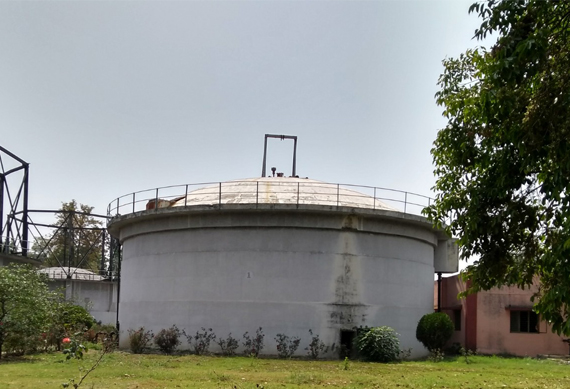
Bio CNG
Bio CNG is the non-polluting fuel. It recycles the carbon in the waste that will otherwise reach the atmosphere as greenhouse gases.

The process behind bio CNG
Bio CNG is derived from biogas after refining. Biogas is formed by anaerobic digestion of organic material. This is a biological process where three groups of bacteria break the long carbon chain in the organic material to generate primarily Methane and Carbon Dioxide. The process requires strict anaerobic conditions i.e. complete absence of oxygen. A range of waste material containing carbon can be used as substrate (raw material).
Bio CNG Applications / Market
Main content of both CNG and bio CNG is Methane (>90%). The applications are similar viz. household fuel, industrial fuel, fuel for vehicles or for generation of electricity. Bio CNG can also be injected into the existing pipelines of CNG.
Our Markets
It is logical that one should operate in the market that generates maximum value. Although bio CNG has multiple uses, under the current market scenario its application as fuel for vehicles generates maximum value and hence it is preferred market for us.
| Bio CNG 0.45 Kg. | Application | Quantity | Market Price | Value creation |
| Vehicle fuel | 0.45 Kg. | Rs. 50 Per Kg. | Rs. 22.50 | |
| Electricity | 2 KWH | Rs. 5.5 Per unit | Rs. 11.00 |
Regulatory
prescriptions
Main content of CNG / bio CNG is Methane. As per regulatory prescriptions in India Methane content in the CNG / bio CNG must be minimum 90%, However, refining Technology being employed by us is yielding more than 94 % methane in our product.
Why should bio CNG be the preferred fuel of 21st Century?
When any fossil fuel - Coal, petrol, diesel or even CNG is used the net result is addition of carbon dioxide to the atmosphere. However, bio CNG is the result of recycling and hence there is no net addition of carbon dioxide to the atmosphere. This is the additional dimension of benefits from recycled fuel.
The digested solid left after anaerobic digestion is the best quality organic fertilizer.
- Bio CNG is the cleanest fuel,
- Does not release lead or sulfur into the atmosphere
- Vehicles powered by bio CNG produce less emissions,
- It is less dangerous as compared to other fuels as it has lower combustibility.
For a country like India that spends major portion of it foreign exchange on oil imports, bio CNG has to be the way of life.
